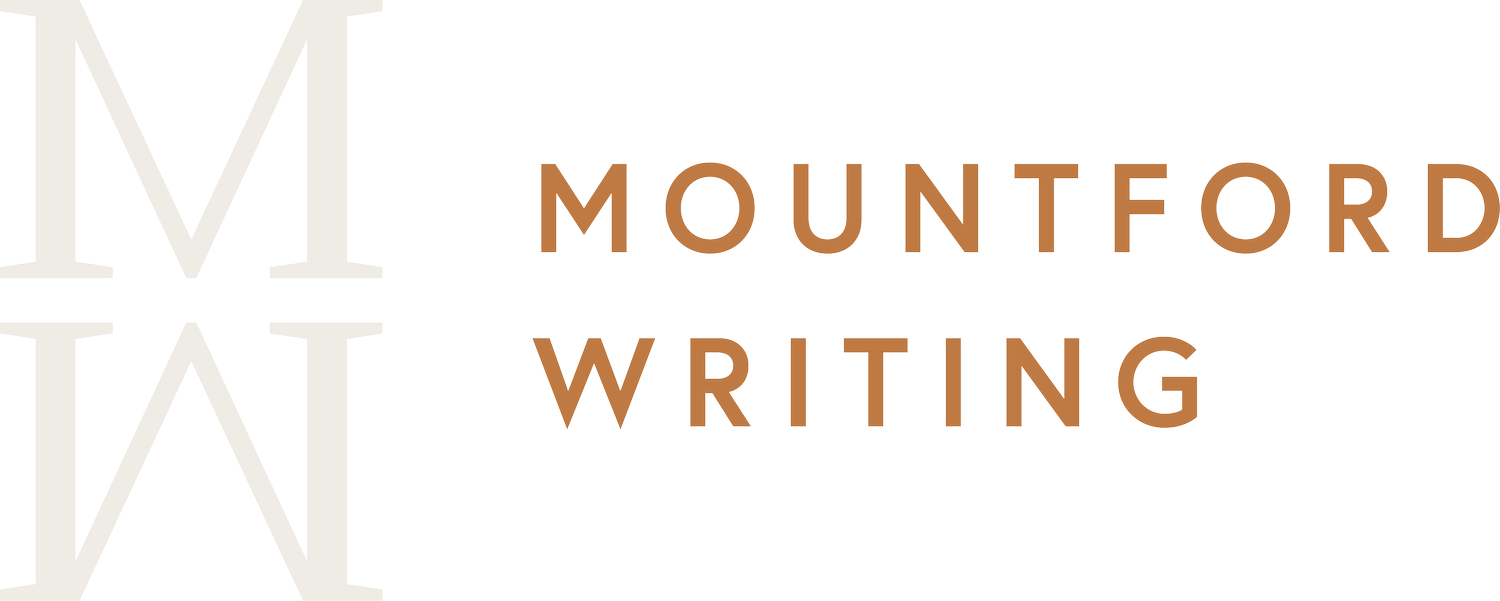Debut Author Hadley Leggett Interview
Hadley’s book deal, as listed on Publisher’s Marketplace on May 31st, 2023.
When Hadley Leggett showed up in my Yearlong Class in the fall of 2018, she was still in the relatively early stages of what has become her superb, very moving debut novel, All They Ask is Everything, forthcoming from Lake Union in 2024.
The novel tells the story of three women each determined to be the perfect mom—for the same two little girls. Accusations fly as bio mom, foster mom, and estranged grandmother vie for custody, until the truth shatters everything they thought they knew about motherhood.
Reviewing my comments on her submissions to that class, what jumps out is the speed with which she learned and adapted. In my response to her first submission, I raised a number of concerns, but my second response starts: “Wow that is QUITE the transformation of your opening pages! My goodness. What to say? You have already learned how to create and sustain some seriously vicious tension. That was totally riveting to read…” And later: “Every sentence is packed with beautiful, specific nouns. The emotion is totally crushing and yet you don’t really talk about emotions.”
And it just got better from there.
One thing I’d love to highlight from her responses below is a crucial and often overlooked idea: asked about her influences, one of the things Hadley says is: “I was also influenced by what I didn’t find in most of the novels I was reading at the time…”
This, to me, seems essential. The best things I’ve written came from the same kind of impulse. I suspect many writers feel this way. That is: you’re frustrated at NOT seeing a certain kind of book in the world, and so you go and write it.
Anyway, read on — and keep an eye out for the book!
Where did the initial concept for your novel All They Ask Is Everything come from?
In her craft book Writing Down the Bones, Natalie Goldberg says, “Writers end up writing about their obsessions. Things that haunt them; things they can’t forget.” I think that’s true for this novel, which has been rattling around inside my brain since back in 2007, when I was a medical student on my pediatrics rotation and was required to report potential abuse situations to child protective services.
Witnessing the fear and trauma inflicted on families by CPS is not something I’ll ever be able to forget. Later, as a new mom struggling with postpartum anxiety, I was haunted by the fear that I might make a horrible mistake and lose my own children. Society’s expectations for parents — especially mothers — are so high, and yet there is little social support for families who are struggling.
On the flip side, several members of my extended family have fostered and eventually adopted children who were born into terrible situations, so I’ve also gotten to witness the ways in which the foster care system can create a better life for kids whose biological parents truly cannot take care of them.
It was out of this duality — on the one hand, empathizing with struggling parents, and on the other, wanting all children to be safe and protected — that I wrote All They Ask Is Everything.
How did you create such convincing characters?
I’m glad you think I pulled it off, because making the three voices distinct was one of the things I worried about most while writing this book.
Hadley Leggett:
“I did fake ‘interviews’ with each character, where I asked them questions about topics like politics and parenting, and let them rant in response to prompts like, ‘my biggest pet peeve is…’ or ‘what people don’t understand about me is…’”
Although I eventually rewrote the manuscript in alternating third person limited, I wrote the first draft as three first-person narratives, which I found made it easier to get inside the characters’ heads. To start with, I did a lot of writing that didn’t make it into the manuscript.
For instance, I did fake “interviews” with each character, where I asked them questions about topics like politics and parenting, and let them rant in response to prompts like, “my biggest pet peeve is…” or “what people don’t understand about me is…”
It was also very helpful to make lists comparing and contrasting my characters’ various personality traits, and I was forever asking myself, “what would Hannah do in this situation, and how would that be different from what Julie or Elaine would do?”
Also, as I got further into the book, I realized I identified with each of the three women for different reasons, so in some ways I simply channeled different parts of my own personality as I wrote.
As far as the manic episode, I drew from my own experience with mental health issues and from my experience as a medical student on my psychiatry rotation. I also read memoirs and watched YouTube videos from people describing their manic episodes. Finally, I had a friend with bipolar disorder read that chapter to make sure it rang true, although of course each person’s experience with mania will be unique.
Which books influenced your writing?
That’s a tough question! I’m constantly reading, and in some ways, I feel like all the novels I read while drafting end up subtly shaping my own words.
One of my biggest influences was probably Celeste Ng’s Little Fires Everywhere, which I read right around the time I started writing. I was so swept up by the tension and nuanced family dynamics she created, and I hoped to capture some of that same magic in my own work.
To learn how to interweave multiple points of view while keeping a single plot moving forward, I studied novels like Liane Moriarty’s The Husband’s Secret and Jodi Picoult’s My Sister’s Keeper. I was also influenced by what I didn’t find in most of the novels I was reading at the time – specifically, honest descriptions of the messiness of raising small children.
So often books seem to glorify or gloss over parenthood, with child characters flitting in and out to offer cute anecdotes but not interfering too much with the rest of the plot. I wanted my child characters to be realistic — to throw tantrums, to bicker, to make demands — because I wanted to explore the full range of emotions inherent in parenthood: joy, yes, but also exhaustion and frustration and boredom.
You didn’t ask about craft books, but in case it’s useful for your readers, the ones I found most helpful were Lisa Cron’s Story Genius (which helped me flesh out my characters), Jessica Brody’s Save the Cat Writes a Novel (which I used during revision to improve my pacing), and Matt Bell’s Refuse to Be Done.
What was surprising about the writing and editing process?
This was the first novel I ever tried to write, and looking back, writing the first draft was surprisingly easy, probably because I had no idea what I was doing and no expectations for myself. Also, I wrote the first draft while the youngest of my three kids was in preschool, so I had exactly three hours, three times a week when I knew I would be alone.
I wrote like mad during those hours, and every time my “inner editor” reared her ugly head, I told her to get lost. Except for the first few chapters, which I lightly edited before sharing with our yearlong class, I didn’t let myself go back and revise until I’d finished the whole book.
When I finished that first draft, though, I felt totally lost about what to do next. After getting feedback from mentors and beta readers, I found it harder than expected to cut the sections that weren’t working.
Now that I’ve written a second book and started a third, it’s much easier for me to axe whole chapters and feel confident there will be more words where those came from. But at first, it was really difficult not to cling to what I’d already written, and I wasted a lot of time trying to revise chapters that weren’t working, instead of simply throwing them out and starting over.
How Did You Find an Agent?
I found my agent the traditional way, through sending out queries and getting lots of radio silence and rejection.
Over the course of 15 months, I queried roughly 100 agents and got around 30 requests for either the full or partial manuscript, which in the end resulted in five offers of representation.
My biggest piece of advice is to wait to start querying until your manuscript is as good as you can possibly make it (through beta readers, mentorship programs, writing classes, etc), because you only get one shot with each agent.
Then, when you’re confident your manuscript is ready, make sure to target your queries to agents who are looking for your type of book — Manuscript Wishlist, QueryTracker, and the acknowledgements pages of books similar to yours are all good places to research agents.
After that, you’ve simply got to be persistent and try not to get discouraged. Agents get hundreds to thousands of queries each month, so no matter how great your manuscript is, querying is a numbers game and rejections are inevitable.
Because finding an agent can be such a long and discouraging process, I highly recommend reaching out to other querying writers for support. After nearly a year of unsuccessful querying, I felt like giving up; instead, I formed a support group with three other querying writers who also happened to be raising small children.
We were all very serious about getting traditionally published, and we’d all been querying for awhile, with plenty of full requests but no offers. We started meeting monthly on Zoom to support each other, and now these writers have become some of my best friends: we read each other’s work, text almost daily, and meet in person for annual writing retreats.
Less than two years after forming our group, all four of us have signed with agents and three of us have book deals… evidence that a good writing group is solid gold!





I’ve long been fascinated and troubled by the question of how to do two separate but connected jobs as a writer:
Evoke a strong feeling within the reader (to make them cry is a kind of peak, I think).
Describe a character who is experiencing huge feelings in a way that doesn’t feel maudlin, or cheesy.